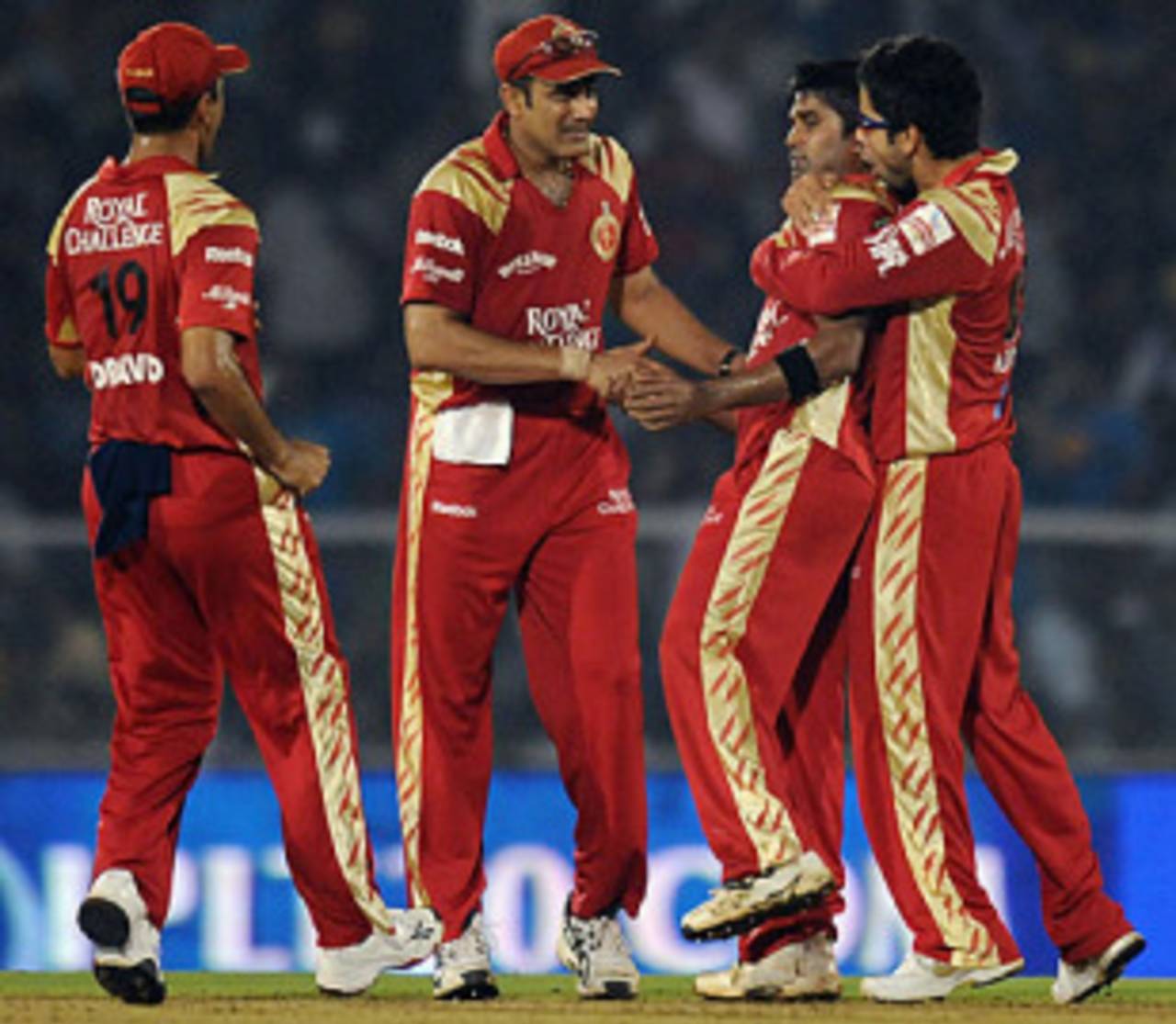Twenty20 shouldn't be played between countries
The international schedule is under pressure from the shortest format. The way forward is a dedicated season for Twenty20, which should use a franchise model to grow the game across the world
Ian Chappell
28-Mar-2010

If the ICC doesn't take firm control over the rampant Twenty20 expansion, the IPL will • Indian Premier League
The IPL's announcement that it will expand by two teams next season could force the ICC to confront an issue it has so far sidestepped - that of a wide-ranging vision for the game's future. While the IPL insists the expansion won't result in a longer tournament, it's abundantly clear that the rise and rise of Twenty20 cricket has already put the squeeze on scheduling. Now is the time to rationalise cricket's various itineraries and decide what role each version has in the game's future.
One way to clarify this situation would be to scrap country-versus-country Twenty20 contests and make the highest level of competition a battle between cities. This way a Twenty20 season could evolve, with the champions of each domestic league playing off to decide the best side. To start with, the ideal windows for these tournaments would be in March-April and September-October. Eventually a World Series could be held, pitting the IPL champions against the winner of the domestic-teams competition in a best-of-three play-off series.
The way to globalise cricket is via Twenty20 and the most effective method of achieving this would be to employ a franchise system, especially in the non-traditional cricket regions. The big question is: what form should these franchises take?
One lucrative income stream has already bypassed the ICC. The IPL franchises are run by Indian entrepreneurs and the substantial money returned to cricket benefits the BCCI. The ICC would only jettison the current World Twenty20 if it could replace the income it receives from this competition. Therefore it needs to ensure that any franchise system it devises results in a reasonable percentage of the money being ploughed back into the development of the game. This means coming up with a formula that involves cricket administrators working with entrepreneurial businessmen. It will be a difficult balance to strike, asking conservative officials to form a harmonious relationship with strident capitalists.
However, handled efficiently it could be a way for regions like the Caribbean to have more control over funds for their player-development schemes. And if an infusion of business acumen also happens to improve the efficiency of cricket administration in places like Pakistan and the West Indies, it could only benefit the game.
If the ICC doesn't take firm control over the rampant Twenty20 expansion, the IPL will. The IPL will quickly spread its wings, ensuring the bulk of the income will end up either in the bulging pockets of rich entrepreneurs or the abundant coffers of the BCCI. If this occurs, it will be a glorious opportunity missed, the international playing field will remain tilted, and the overall development of cricket will suffer.
Countries like Australia have a dilemma: the domestic Twenty20 competition is becoming more popular with each game but this has diluted the fans' spending power for international cricket.
If, on the other hand, the ICC develops the right formula for franchising, it could have a profound effect on the direction the game takes. Not only could it result in cricket successfully expanding to regions like North America, Europe and the non-traditional cricket areas of Asia, it may also mean a marked change in the way the game is run.
Currently, countries like Australia have a dilemma; the domestic Twenty20 competition is becoming more popular with each game but this has diluted the fans' spending power for international cricket. Consequently the crowds at limited-overs internationals have reduced. In most parts of the cricketing world this is a common problem; one form of the game is cannibalising another.
India is the only country with the population, the thriving economy and the fanatical interest in the game to be able to programme matches at virtually any time and still attract big crowds.
Hence the ICC needs to explore other potentially productive markets that will decrease the dependence on India's financial clout, while also adding to the number of venues available at different times of the year.
There is the possibility that if you allocate separate sections of the season to different forms of the game it will divide the spectators. It could become a case of: "I'm a Test match supporter" or "I'm a Twenty20 fan". Nevertheless, it could also help players transition more easily from one form to another.
If what Harsha Bhogle tells me is true, that India thrives in chaos, then the rest of the cricket world is in trouble. Currently, cricket's scheduling is chaotic.
Former Australia captain Ian Chappell is now a cricket commentator and columnist